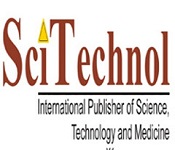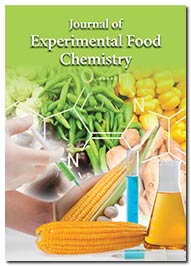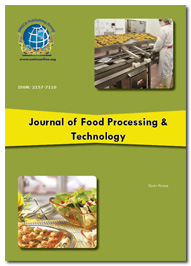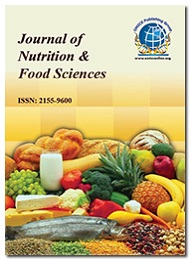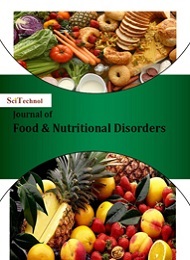Theme: Highlighting latest advancements in Nutrition and Dietetics & Application of Nutrition Knowledge for better and healthier life
Nutrition Congress 2016
ConferenceSeries Ltd cordially welcomes all the participants and contributors from worldwide to attend the "5th European Nutrition and Dietetics Conference" during June 16-18, 2016 in Rome, Italy. The theme of the Nutrition conference mainly emphasize on “Highlighting latest advancements in Nutrition and Dietetics & Application of Nutrition Knowledge for better and healthier life”.
Nutrition Conferences is a leading forum for academic faculty, clinical nutritionists, registered dieticians & practitioners, research experts in food technology, nutrition and dietetics, President’s, Founders, CEO’s, business delegates, investors in Food & Nurtition sectors, young researchers and talented student communities from universities and research labs providing an ideal environment to share the latest innovations in the Nutrition therapy and Dietetics research. We have handled many successful Nutrition events , Nutrition conferences and Nutrition meetings which helped to build good relations, bringing the researchers and companies together. Nutrition conferences, Nutrition meetings and Nutrition events are very important for the common people to remain healthy and fit throughout their life.
Food and Nutrition also Nutrition therapy research is a subject of wide-ranging curiosity and importance. Nutritional science is the examination of how an organism is nourished, and combines the study of how nourishment affects personal health, population health, and planetary health.
Nutrition conferences, Nutrition events and Nutrition meetings are very important in terms of the research that are going on worldwide, so that the Knowledge can spread to remain fit and healthy throughout our life.
Track 1: Clinical Nutrition
Clinical nutrition is of central importance for our ability to handle diseases in general, infections, surgery and trauma in particular. The objective of nutrition therapy is improved patient outcome by-
- avoiding malnutrition
- maintaining body tissue and functioning plasma protein stores
- preventing macro- and micronutrient deficiency
No patient should have insufficient intake of energy and substrates in modern hospital care treatment. The parenteral route can be used successfully when other alternatives of nourishment are difficult or impossible. Nowadays, fully adequate nutrition can be performed by giving total parenteral nutrition (TPN). The regimen can be individualized to cover different needs. In the short term we can compensate for disturbances in the longer term we can maintain nutritional balance.
Nutrition Conferences: 6th International Conference and Exhibition on Diet and Nutrition, August 18-20, 2016, UK, 8th International Conference on Clinical Nutrition December, 8-10, 2016 Dubai, UAE, International Conference and Expo on Sports Nutrition and Supplements July 11-12, 2016 Philadelphia, USA, 2nd International Conference on Nutraceuticals and Nutrition Supplements July 18-20, 2016 Bangkok, Thailand, International Conference on Restorative Medicine & Therapeutics October 24-25, 2016 Chicago, Illinois, USA, Singapore, 37th European Society For Clinical Nutrition And Metabolism Congress, 05 - 08 September 2015, Lisbon, 35th ESPEN Congress on Clinical Nutrition & Metabolism 2013, 31 August - 3 September 2016, Germany, 36th European Society For Clinical Nutrition And Metabolism Congress, 06 - 09 September 2016, Switzerland, The 5th Annual Middle East Congress on Clinical Nutrition, 22 - 24 March 2016, Egypt
Track 2: Sports Nutrition
From the athletes’ point of view, there is nutrition related to workouts and events, and general nutrition. Nutrition related to workouts and events refers to nutrition before, during, and after workouts and events. It is about pre exercise, during exercise, and post-exercise nutrition. It is mostly about fluids and carbohydrate calories. It is a little about sodium. Of course, caloric mix and quality, vitamins, minerals, and other nutrients have important roles to play in general or overall nutrition. There are several major reasons to study interactions between muscle protein interactions during and after exercise and nutrition. Muscle contains a large pro-portion of the total protein in the adult body (40%) and accounts for between one third and one half of all protein turnover in the body. Its total mass and cellular biology are markedly affected by the extent and type of its habitual contractile activity; furthermore, muscle is important not only as a machine for the transduction of chemical energy into mechanical work, but it is also engaged in the diurnal regulation of the ebb and flow of amino acids between the center and the periphery with feeding and fasting, and muscle can be considered to be a store of energy and nitrogen during starvation and disease and after injury.
Nutrition Conferences: 6th International Conference and Exhibition on Diet and Nutrition, August 18-20, 2016, UK, 8th International Conference on Clinical Nutrition December, 8-10, 2016 Dubai, UAE, International Conference and Expo on Sports Nutrition and Supplements July 11-12, 2016 Philadelphia, USA, 2nd International Conference on Nutraceuticals and Nutrition Supplements July 18-20, 2016 Bangkok, Thailand, International Conference on Restorative Medicine & Therapeutics October 24-25, 2016 Chicago,, International Sport and Exercise Nutrition Conference (ISENC), 17-19, 2013 December UK, Sport Nutrition and Human Performance Conference, Feb. 20 - 21, 2016, USA, International Sports Nutrition conference, 2014-03-19, UK, 4th Sports & Performance Nutrition Platform 2014 Conference 1st to 2nd April 2016, Cologne, Germany, 20th Annual Congress of the European College of Sport Science, June 24 and 27, 2016, Sweden
Track 3: Plant Nutrition
Plants nutrition are irreplaceable food resources for humans. Synthetic chemicals and petroleum derivatives can replace many plant-derived medicines, fibers, and dyes; metal, brick, and concrete can replace wood; but there is no substitute for plant-derived foods. Almost all human foods are plants or organisms that eat plants. Saprophytic fungi contribute relatively little to the average caloric intake of most people. The first humans gathered wild species. Modern cultures rely on high-yielding cultivars, giving them greater control over food supplies. While food scarcity and famine remain threats in some parts of the world (e.g., sub Saharan Africa and the Indian subcontinent), more than 90% of the world has a predictable and sufficient source of food.
Nutrition Conferences: 6th International Conference and Exhibition on Diet and Nutrition, August 18-20, 2016, UK, 8th International Conference on Clinical Nutrition December, 8-10, 2016 Dubai, UAE, International Conference and Expo on Sports Nutrition and Supplements July 11-12, 2016 Philadelphia, USA, 2nd International Conference on Nutraceuticals and Nutrition Supplements July 18-20, 2016 Bangkok, Thailand, International Conference on Restorative Medicine & Therapeutics October 24-25, 2016 Chicago, Illinois, USA, Singapore, 2nd Global Summit on Aquaculture & Fisheries July 11-13, 2016 , Malaysia World Conference on Innovative Animal Nutrition and Feeding, October 15-17 2016, Hungary, Third Annual International Plant-Based Nutrition Healthcare Conference, Sept 30 – Oct 3, 2016 USA, 17th International Plant Nutrition Colloquium (IPNC), 19-22 August, 2016, Turkey, California Animal Nutrition Conference, May 6-7 2016, USA, IX Biennial Conference Animal Nutrition Conference, January 22-24, 2015, India
Track 4: Animal and Dairy Nutrition
Animal nutrition deals with nutritional benefits on consumption of dairy products, genetically modified animal nutrition, meats and fish and also a section view to farm environment. Billions of people around the world consume milk and dairy products every day. Not only are milk and dairy products a vital source of nutrition for these people, they also present livelihoods opportunities for farmers, processors, shopkeepers and other stakeholders in the dairy value chain. But to achieve this, consumers, industry and governments need up-to-date information on how milk and dairy products can contribute to human nutrition and how dairying and dairy-industry development can best contribute to increasing food security and alleviating poverty. The rapid rise in aggregate consumption of meat and milk is propelled by millions of people with rising incomes diversifying from primarily starch-based diets into diets containing growing amounts of dairy and meat industry. The underlying forces driving these trends are set to continue, and the potential for increased demand for livestock nutrition remains vast in large parts of the developing world. Growing consumption of dairy and other livestock products is bringing important nutritional benefits to large segments of the population of developing countries, although many millions of people in developing countries are still not able to afford better-quality diets owing to the higher cost.
Nutrition Conferences: 6th International Conference and Exhibition on Diet and Nutrition, August 18-20, 2016, UK, 8th International Conference on Clinical Nutrition December, 8-10, 2016 Dubai, UAE, International Conference and Expo on Sports Nutrition and Supplements July 11-12, 2016 Philadelphia, USA, 2nd International Conference on Nutraceuticals and Nutrition Supplements July 18-20, 2016 Bangkok, Thailand, International Conference on Restorative Medicine & Therapeutics October 24-25, 2016 Chicago, Illinois, USA, Singapore, World Conference on Innovative Animal Nutrition and Feeding, October 15-17 2016, Hungary, Third Annual International Plant-Based Nutrition Healthcare Conference, Sept 30 – Oct 3, 2016, USA, 17th International Plant Nutrition Colloquium (IPNC), 19-22 August, 2016, Turkey, California Animal Nutrition Conference, May 6-7 2016, USA, IX Biennial Conference Animal Nutrition Conference, January 22-24, 2016, India
Track 5: Malnutrition or Nutritional Deficiency
Malnutrition is a state of nutrition in which a deficiency or excess (or imbalance) of energy, protein and other nutrients causes measurable adverse effects on tissue / body form (body shape, size and composition) and function and clinical outcome. The term malnutrition does include obesity; however BAPEN is focussed on the problem of “under nutrition”.
Malnutrition can often be very difficult to recognise, particularly in patients who are overweight or obese to start with. Malnutrition can happen very gradually, which can make it very difficult to spot in the early stages. Some of the symptoms and signs to watch out for include:
- Loss of appetite
- Weight loss – clothes, rings, jewellery, dentures may become loose
- Tiredness, loss of energy
- Reduced ability to perform normal tasks
- Reduced physical performance – for example, not being able to walk as far or as fast as usual
- Altered mood – malnutrition can be associated with lethargy and depression
- Poor concentration
Nutrition Conferences: 6th International Conference and Exhibition on Diet and Nutrition, August 18-20, 2016, UK, 8th International Conference on Clinical Nutrition December, 8-10, 2016 Dubai, UAE, International Conference and Expo on Sports Nutrition and Supplements July 11-12, 2016 Philadelphia, USA, 2nd International Conference on Nutraceuticals and Nutrition Supplements July 18-20, 2016 Bangkok, Thailand, International Conference on Restorative Medicine & Therapeutics October 24-25, 2016 Chicago, Illinois, USA, Singapore, Second International Conference on Nutrition (ICN2), 19-21 November 2016, Rome, Italy, 2nd International Congress Hidden Hunger, March 3-6, 2016, Stuttgart, German, Hunger and malnutrition Conference, Italy, XIII International Conference on Nutrition and Food Sciences (ICNFS), 29 July 2016, Switzerland, 2 Days International Conference on "Malnutrition" in South Asia : The Peril Persists", February 23-24, 2016, Pakistan.
Track 6: Nutrient related Chronic Diseases
The world has traditionally focused on the vast magnitude of the many forms of nutritional deficiency, along with their associated mortality and morbidity in infants, young children and mothers. However, the world is also seeing a dramatic increase in other forms of malnutrition characterized by obesity and the long-term implications of unbalanced dietary and lifestyle practices that result in chronic diseases such as cardiovascular disease (CVD), cancer and diabetes therapy. All forms of malnutrition's broad spectrum are associated with significant morbidity, mortality, and economic costs, particularly in countries where both under and over nutrition co-exist as is the case in developing countries undergoing rapid transition in nutrition and lifestyle. Food and nutrition are important factors in the promotion and maintenance of good health throughout the entire life course. Their role as determinants of chronic NCDs is well established and they therefore occupy a prominent position in prevention activities. All important aspect, symptoms and treatment of different chronic diseases like Liver diseases, Iron deficiency and Hemochromatosis (Iron Overload), Macular Degeneration, Chronic Fatigue Syndrome (CFS or SEID), Metabolic Syndrome, Hodgkin's Disease, Menstrual Cramps and Premenstrual Syndrome (PMS) Medication, Cardiovascular & Metabolic Diseases, Cholestatic liver will be discussed.
Nutrition Conferences: 6th International Conference and Exhibition on Diet and Nutrition, August 18-20, 2016, UK, 8th International Conference on Clinical Nutrition December, 8-10, 2016 Dubai, UAE, International Conference and Expo on Sports Nutrition and Supplements July 11-12, 2016 Philadelphia, USA, 2nd International Conference on Nutraceuticals and Nutrition Supplements July 18-20, 2016 Bangkok, Thailand, International Conference on Restorative Medicine & Therapeutics October 24-25, 2016 Chicago, Illinois, USA, Singapore Liver Disease & Gastroenterology Annual Conference May 29 and 30, 2016, USA, International Conference on Nutrition in Medicine: Cardiovascular Disease Conference, July 31- 1 Aug 2016, USA, Fifth International Symposium on Childhood, Adolescent and Young Adult Non-Hodgkin Lymphoma, Oct 22-24 2016, Italy,
Track 7: Nutrition and Cancer
The field of investigation of the role of nutrition in the cancer process is very broad. It is becoming clearer as research continues that nutrition plays a major role in cancer. It has been estimated by the American Institute for Cancer Research and the World Cancer Research Fund that 30–40 per cent of all cancers can be prevented by appropriate diets, physical activity, and maintenance of appropriate body weight. It is likely to be higher than this for some individual cancers. Most of the research on nutrition and cancer has been reductionist; that is, a particular food or a nutrient has been studied in relation to its impact on tumour formation/regression or some other end point of cancer at a particular site in the body. These studies are very helpful in seeing the details of the mechanisms of disease. However, they do not help give an overall picture of how to prevent cancer on a dietary level. Even less, they tell little of how to eat when a person already has a cancer and would like to eat a diet that is favourable to their recovery.
Nutrition Conferences: 6th International Conference and Exhibition on Diet and Nutrition, August 18-20, 2016, UK, 8th International Conference on Clinical Nutrition December, 8-10, 2016 Dubai, UAE, International Conference and Expo on Sports Nutrition and Supplements July 11-12, 2016 Philadelphia, USA, 2nd International Conference on Nutraceuticals and Nutrition Supplements July 18-20, 2016 Bangkok, Thailand, International Conference on Restorative Medicine & Therapeutics October 24-25, 2016 Chicago, Illinois, USA, Singapore, Nutrition and Cancer Conference, West Sussex, UK, Oncology Nutrition Symposium 2016, May 2-3, 2016, Orlando, USA, ESMO Symposium on Cancer and Nutrition 2009, 20 Mar - 21 Mar 2016, Switzerland, AICR 2016 Annual Research Conference on Food, Nutrition, Physical Activity and Cancer, 10/29/2016 to 10/31/2016, USA Oncology Organizations and Meetings for 2015, January 7-10, 2016, USA
Track 8: Nutrition in Pregnancy and Lactation
From time immemorial it has been recognized that women especially pregnant and lactating women form one of the most vulnerable segments of the population from nutritional point of view. Maternal health under nutrition is associated with low birth weight and all its attendant adverse consequences. Epidemiological studies has documented the magnitude and adverse consequences of chronic energy deficiency (CED) on the mother child dyad and paved way for effective intervention programmes to address under nutrition during pregnancy and lactation. Too early, too close, too many and too late pregnancy and child health adversely affect nutrition and health status of the mother child dyad; timely contraceptive care has become an indirect effective intervention to prevent deterioration in maternal and child nutrition. Yet another important indirect cause of under nutrition continues to be infections; under nutrition increases the susceptibility for infections; infections aggravate under nutrition. With the advent of HIV epidemic, it is inevitable that over the next decade there will be an increase in under nutrition in women due to HIV infection. While under nutrition continues to be major problem as in the earlier decades, the current decade has witnessed the progressive rise of over nutrition in women during reproductive age especially among the affluent segments of population both in urban and in rural areas. It has become imperative to assess the pregnant women diet and nutrition and give them appropriate advice and care.
Nutrition Conferences: 6th International Conference and Exhibition on Diet and Nutrition, August 18-20, 2016, UK, 8th International Conference on Clinical Nutrition December, 8-10, 2016 Dubai, UAE, International Conference and Expo on Sports Nutrition and Supplements July 11-12, 2016 Philadelphia, USA, 2nd International Conference on Nutraceuticals and Nutrition Supplements July 18-20, 2016 Bangkok, Thailand, International Conference on Restorative Medicine & Therapeutics October 24-25, 2016 Chicago, Illinois, USA, Singapore, 2nd National Breastfeeding Conference, 25th March 2016, Cumbria, 22nd Annual Professional Lactation Conference, April 23 & 24, 2016, USA, Midwest Lactation Conference, September 25-26, 2016, USA, ALCI All Ireland Breastfeeding Conference,3rd -4th October, Ireland, Annual Conference of International Lactation Consultant Association, 22 - 25 July 2016, U.S.A
Track 9: Paediatric Nutrition
Over the past several decades, the incidence of atopic diseases such as asthma, atopic dermatitis, and food allergies has increased dramatically. Among children up to 4 years of age, the incidence of asthma has increased 160%, and the incidence of atopic dermatitis has increased twofold to threefold. The incidence of peanut allergy has also doubled in the past decade. Thus, atopic diseases increasingly are a problem for clinicians who provide health care to children. It has been recognized that early childhood events, including diet, are likely to be important in the development of both childhood and adult diseases. This clinical report will review the nutritional options during pregnancy, lactation, and the first year of life that may or may not affect the development of atopic disease. Although atopic diseases have a clear human genetic basis, environmental factors, including early infant nutrition, may have an important influence on their development and, thus, present an opportunity to prevent or delay the onset of the disease. This clinical report replaces an earlier policy statement from the American Academy of Pediatrics (AAP) that addressed the use of hypoallergenic infant formulas and included provisional recommendations for dietary management for the prevention of atopic disease. This report is not directed at the treatment of atopic disease once an infant or child has developed specific atopic symptoms.
Nutrition Conferences: 6th International Conference and Exhibition on Diet and Nutrition, August 18-20, 2016, UK, 8th International Conference on Clinical Nutrition December, 8-10, 2016 Dubai, UAE, International Conference and Expo on Sports Nutrition and Supplements July 11-12, 2016 Philadelphia, USA, 2nd International Conference on Nutraceuticals and Nutrition Supplements July 18-20, 2016 Bangkok, Thailand, International Conference on Restorative Medicine & Therapeutics October 24-25, 2016 Chicago, Illinois, USA, Singapore, Latin and Ibero, American Congress of Paediatric Gastroenterology, Hepatology and Nutrition, 18–21 November 2016, Peru, Pediatric Nutrition Conference, USA, Pediatric Nutrition Days Conference, June 2016, Hamilton, Canada, 2016 Infant and Pediatric Specialty Nutrition Conference, November4 & 5 2016, USA,
Track 10: Nutrition during Adolescence
The phenomenal growth that occurs in adolescence, second only to that in the first year of life, creates increased demands for energy and nutrients. Total nutrient needs are higher during adolescence than any other time in the lifecycle. Nutrition and physical growth are integrally related; optimal nutrition is a requisite for achieving full growth potential. Failure to consume an adequate diet at this time can result in delayed sexual maturation and can arrest or slow linear growth. Nutrition is also important during this time to help prevent adult diet-related chronic diseases, such as cardiovascular disease, cancer, and osteoporosis. Prior to puberty, nutrient needs are similar for boys and girls. It is during puberty that body composition and biologic changes (e.g., menarche) emerge which affect gender-specific nutrient needs. Nutrient needs for both males and females increase sharply during adolescence. Nutrient needs parallel the rate of growth, with the greatest nutrient demands occurring during the peak velocity of growth. At the peak of the adolescent growth spurt, the nutritional requirements may be twice as high as those of the remaining period of adolescence.
Nutrition Conferences: 6th International Conference and Exhibition on Diet and Nutrition, August 18-20, 2016, UK, 8th International Conference on Clinical Nutrition December, 8-10, 2016 Dubai, UAE, International Conference and Expo on Sports Nutrition and Supplements July 11-12, 2016 Philadelphia, USA, 2nd International Conference on Nutraceuticals and Nutrition Supplements July 18-20, 2016 Bangkok, Thailand, International Conference on Restorative Medicine & Therapeutics October 24-25, 2016 Chicago, Illinois, USA, Singapore, The 19th European Meeting of the International Association of Adolescent Health, June 24-26, 2016, Portugal, Japanese Society For Child And Adolescent Psychiatry 56th Meeting 2016 (JSCAP 2015), September 29-October 1, 2016, Japan, 2014 Annual Meeting Nature and Nurture: Moving to a Deeper Understanding of Adolescent Health, March 23-26, 2016, Texas, USA
Track 11: Diet in Obesity and Underweight
Obesity is a growing concern because being overweight is widely regarded as a major risk factor for metabolic syndrome, cardiovascular disease, and premature death. Although the mechanisms for this weight gain have not been entirely elucidated, dietary factors may be important in the development of obesity. Diet consists of combinations of foods, and these individual components may have interactive or synergistic effects that make studying dietary factors in isolation difficult. Dietary patterns that represent a combination of foods may be more strongly associated with disease risk than an individual food and nutrient. Previous studies have reported that dietary patterns that are high in fruits, vegetables, and fibre might be associated with areduced risk of obesity.
Nutrition Conferences: 6th International Conference and Exhibition on Diet and Nutrition, August 18-20, 2016, UK, 8th International Conference on Clinical Nutrition December, 8-10, 2016 Dubai, UAE, International Conference and Expo on Sports Nutrition and Supplements July 11-12, 2016 Philadelphia, USA, 2nd International Conference on Nutraceuticals and Nutrition Supplements July 18-20, 2016 Bangkok, Thailand, International Conference on Restorative Medicine & Therapeutics October 24-25, 2016 Chicago, Illinois, USA, Singapore, 2nd International Conference and Exhibition on Obesity & Weight Management Conference, 2nd to 4th December 2016, USA, The 8th biennial Childhood Obesity Conference, June 29 – July 2, 2016, USA, The 12th International Congress on Obesity,17-20 March 2016, Malaysia, The XIII International Conference on Obesity (ICO) May 2016, Canada, 17th International Conference on Obesity, May 25 - 26, 2016, UK
Track 12: Dier for Gastrointestinal Diseases
Dietary modifications in gastrointestinal tract disorder are designed to alleviate symptoms, correct nutrient deficiencies, and, when possible, address the primary cause of difficulty. In disease, assessment of the nature and severity of the primary gastrointestinal problem precedes targeted medical, nutrition, and other forms of therapy. Increased intakes of energy, protein, vitamins, minerals, and electrolytes are frequently required to replace nutrients lost as a result of impaired digestive and absorptive capacity. Consistency, meal frequency, and other characteristics of the diet may be altered to fit the patient’s needs. Medical nutrition therapy (MNT) for all patients with diseases of the intestines must be individualized. The primary emphasis in dietary management isthe reduction of carbohydrate foods that are likely to be malabsorbed and fermented, including legumes, soluble fiber, resistant starches, and simple sugars such as fructose and alcohol sugars.
Nutrition Conferences: 6th International Conference and Exhibition on Diet and Nutrition, August 18-20, 2016, UK, 8th International Conference on Clinical Nutrition December, 8-10, 2016 Dubai, UAE, International Conference and Expo on Sports Nutrition and Supplements July 11-12, 2016 Philadelphia, USA, 2nd International Conference on Nutraceuticals and Nutrition Supplements July 18-20, 2016 Bangkok, Thailand, International Conference on Restorative Medicine & Therapeutics October 24-25, 2016 Chicago, Illinois, USA, Singapore, International Conference on Clinical Gastroenterology & Hepatology October 03-05, 2016, Canada , Florid, Gastroenterological Society Annual Meeting 2016, September 25- September 27, 2016, USA, Swiss Society of Gastroenterology Annual Meeting 2016, October 1- October 2, 2016, Switzerland, Dutch Society of Gastroenterology Autumn Meeting 2016, October 8 - October 9, 2016, Netherland, 21st Russian Gastroenterology Week 2015, October 12 - October 14, 2016, Russia, National Liver Conference 2016, September 18, 2016, USA,
Track 13: Nutrition and Psychology
Psychology has been applied to the field of sports so that athletes can maximize their ability on the playing field and to the legal system so that the validity of eyewitness memory can be better understood. Businesses have long relied on psychologists for selection methods and tests for personnel, yet one discipline has yet to be tapped the field of nutrition. As is true of exercise, eating is a behaviour important for optimal health. Eating meets basic biological needs, yet many people suffer health problems due to poor eating choices. For example, some people eat too much food for their level of activity and gradually become obese. Others restrict their food intake severely, resulting in serious health problems and even death. Drastically limiting food intake is often motivated by psychosocial factors such as a misguided desire to improve physical appearance or to enhance athletic performance. Good nutritional practices and weight control are two related but different issues in health psychology. Positive health behaviors include eating all necessary nutrients while preventing an accumulation of excess body fat. Body weight can be lost through starvation, but this is dangerous to health and results in undesirable losses of muscle and bone mass. Another important fact is that many adults who lose weight eventually regain it in the form of fat. This happens because they revert to previous eating and exercise patterns. Maintenance of a healthy body weight is central to good health.
Nutrition Conferences: 6th International Conference and Exhibition on Diet and Nutrition, August 18-20, 2016, UK, 8th International Conference on Clinical Nutrition December, 8-10, 2016 Dubai, UAE, International Conference and Expo on Sports Nutrition and Supplements July 11-12, 2016 Philadelphia, USA, 2nd International Conference on Nutraceuticals and Nutrition Supplements July 18-20, 2016 Bangkok, Thailand, International Conference on Restorative Medicine & Therapeutics October 24-25, 2016 Chicago, Illinois, USA, Singapore, Fourth World Congress on Positive Psychology Conference, June 25-28, 2016, USA, The 5th Annual Middle East Congress on Clinical Nutrition, 22 - 24 March 2016, Egypt, International Congress Of Clinical Psychology, 19-22 Nov 2016, Spain, 14th European Congress of Psychology (ECP 2015), July 7 - 10, 2016, Italy.
Track 14: Nutrition, Health and Choice
The word nutrition first appeared in 1551 and comes from the Latin word nutrire, meaning “to nourish.” Today, we define nutrition as the sum of all processes involved in how organisms obtain nutrients, metabolize them, and use them to support all of life’s processes. Nutritional science is the investigation of how an organism is nourished, and incorporates the study of how nourishment affects personal health, population health, and planetary health. Nutritional science covers a wide spectrum of disciplines. As a result, nutritional scientists can specialize in particular aspects of nutrition such as biology, physiology, immunology, biochemistry, education, psychology, sustainability, and sociology. In 1946, the World Health Organization (WHO) defined health as “a state of complete physical, mental, and social well-being, and not merely the absence of disease or infirmity.” The foods we eat contain nutrients. Nutrients are substances required by the body to perform its basic functions. Nutrients must be obtained from diet, since the human body does not synthesize them. Nutrients are used to produce energy, detect and respond to environmental surroundings, move, excrete wastes, respire There are six classes of nutrients required for the body to function and maintain overall health. These are carbohydrates, lipids, proteins, water, vitamins, and minerals. Foods also contain nonnutrients that may be harmful (such as cholesterol, dyes, and preservatives) or beneficial (such as antioxidants).
Nutrition Conferences: 6th International Conference and Exhibition on Diet and Nutrition, August 18-20, 2016, UK, 8th International Conference on Clinical Nutrition December, 8-10, 2016 Dubai, UAE, International Conference and Expo on Sports Nutrition and Supplements July 11-12, 2016 Philadelphia, USA, 2nd International Conference on Nutraceuticals and Nutrition Supplements July 18-20, 2016 Bangkok, Thailand, International Conference on Restorative Medicine & Therapeutics October 24-25, 2016 Chicago, Illinois, USA, Singapore, 2016 PDA NUTRITION CONFERENCE, March 16-17, 2016, USA, 3rd International One Health Congress, 15-18 March 2016, The Netherlands, Canadian Conference on Global Health , November 2-4,2016, Canada, 8th European Public Health Conference, 14 - 17 October 2016, Italy, Food Products, Nutrition, and Health 2016 Conference, July 8, 2016, USA,
Track 15: Current Research in Nutrition and Dietetics
The common nutrition criteria are not intended as a universally applicable system. The choice of categories was motivated by the need to balance the need for simplicity and consistent treatment of similar products on the one hand and, on the other, the need to avoid categories so broad that only lax nutrition criteria would accommodate all types of products represented in a category. In order to ensure both robustness and fairness, it was necessary to create sub-categories within most of the nine categories.
Nutrition labelling is information found on the labels of pre-packaged foods.The legislated information includes:
- The Nutrition Facts table
- The ingredient list
- Some optional nutrition claims
These give you information about the nutritional value of a food. You can use this information to make healthier food choices and achieve overall good health.The Nutrition Facts table gives you information about:
- Calories
- 13 core nutrients
- % Daily Value (% DV) of nutrients
All of the information in the Nutrition Facts table is based on an amount of food. This amount is always found at the top of the Nutrition Facts table. Foodborne diseases take a major toll on health. Millions of people fall ill and many die as a result of eating unsafe food. Deeply concerned by this, WHO Member States adopted a resolution in 2000 to recognize food safety as an essential public health function. Food safety encompasses actions aimed at ensuring that all food is as safe as possible. Food safety policies and actions need to cover the entire food chain, from production to consumption.
Among manufactured nutritional supplements containing natural and naturally derived Ingredients, one should keep in mind that in the US nutritional supplements are not regulated the same way as prescription drugs. Supplements are regulated by the Food and Drug Administration (FDA), but not as food or drugs. They fall into a special category called dietary supplements.
Nutrition Conferences: 6th International Conference and Exhibition on Diet and Nutrition, August 18-20, 2016, UK, 8th International Conference on Clinical Nutrition December, 8-10, 2016 Dubai, UAE, International Conference and Expo on Sports Nutrition and Supplements July 11-12, 2016 Philadelphia, USA, 2nd International Conference on Nutraceuticals and Nutrition Supplements July 18-20, 2016 Bangkok, Thailand, International Conference on Restorative Medicine & Therapeutics October 24-25, 2016 Chicago, Illinois, USA, Singapore, 9th International Conference on Predictive Modelling in Food, 8-12 September 2015, Conference, Brazil, Conference "Innovations in Food Packaging, Shelf Life and Food Safety", 15-17 September 2015, Germany, 15th International Nutrition & Diagnostics Conference, 5 - 8 October 2015,, Czech Republic, 2nd International Conference on Global Food Security, 11-14 October 2015, USA, World Food Congress, 12–15 October 2015, UAE
ConferenceSeries Ltd cordially welcomes all the participants and contributors from worldwide to attend the "5th European Nutrition and Dietetics Conference" during June 16-18, 2016 in Rome, Italy. This Nutrition conference theme mainly emphasis on “Highlighting latest advancements in Nutrition and Dietetics & Application of Nutrition Knowledge for better and healthier life”.
Nutrition Congress 2016 is a leading forum for academic faculty, clinical nutritionists, registered dieticians & practitioners, research experts in food technology, nutrition and dietetics, President’s, Founders, CEO’s, business delegates, investors in Food & Nurtition sectors, young researchers and talented student communities from universities and research labs providing an ideal environment to share the latest innovations in the Nutrition and Dietetics research. We have handled many successful Nutrition events and Nutrition conferences which helped to build good relations, bringing the researchers and companies together. Nutrition conferences, Nutrition meetings and Nutrition events are very important for the common people to remain healthy and fit throughout their life.
Food and Nutrition also Nutrition therapy research is a subject of wide-ranging curiosity and importance. Nutritional science is the examination of how an organism is nourished, and combines the study of how nourishment affects personal health, population health, and planetary health.
Nutrition conferences, Nutrition events and Nutrition meetings are very important in terms of the research that are going on worldwide, so that the Knowledge can spread to remain fit and healthy throughout our life.
Nutrition, the summation of all processes involved in how organisms acquire nutrients, digests them, and uses them to backing all of life’s processes. Nutritional science is the examination of how an organism is nourished, and combines the study of how nourishment affects personal health, population health, and planetary health. Nutritional science shelters a wide spectrum of chastisements. Whereas Dietetics is defined as “The art and science anxious with the guideline of the usual food and drink of a person as it narrates to health and hygiene, ration to sustain it in its presence, promoting growth, swapping loss, and providing liveliness”.
Why to Attend?
Nutrition Congress 2016 is intended to provide a notable opening to the experts in the field of nutrition to discuss latest research and challenges in the arena. Nutrition Congress 2016 is planned to provide an special podium for clinical nutritionists, registered dieticians, and other health-care professionals, researchers and students working in the arena to consciously, exchange visions and their understandings in front of a large intercontinental listeners. This Nutrition conferences or rather all Nutrition conferences, Nutrition events and Nutrition meetings will help in intermingling with different brains in nutrition and dietetics throughout the world, B2B construction between specialists and academicians.The companies dealing with nutritional products and supplements can exhibit their products in the Nutrition exhibition and expo.
OMICS International strongly believes that 5th European Nutrition and Dietetics Conference will provide an opening for discussions on come across nutrition and dietetics related problems and challenges in the turf of nutrition and food science. It will also help in sponsoring mindfulness and help in undertaking one of the precarious problems of mankind.
Target Audience:
- Clinical Nutritionists
- Registered Dieticians
- Health-Care Professionals
- Researchers and Scientists
- Training Institutes
- Universities and Colleges Students
- Nutrition and Dietetics Associates
- Nutrition and Dietetics based Companies
- Bussiness Entrepreneurs
Summary
Nutrition, the summation of all processes involved in how organisms acquire nutrients, digests them, and uses them to backing all of life’s processes. Nutritional science is the examination of how an organism is nourished, and combines the study of how nourishment affects personal health, population health, and planetary health. Nutritional science shelters a wide spectrum of chastisements. Whereas Dietetics is defined as “The art and science anxious with the guideline of the usual food and drink of a person as it narrates to health and hygiene, ration to sustain it in its presence, promoting growth, swapping loss, and providing liveliness”.
Nutrition Congress 2016 is a leading forum for academic faculty, clinical nutritionists, registered dieticians & practitioners, research experts in food technology, nutrition and dietetics, President’s, Founders, CEO’s, business delegates, investors in Food & Nurtition sectors, young researchers and talented student communities from universities and research labs providing an ideal environment to share the latest innovations in the Nutrition therapy and Dietetics research. We have handled many successful Nutrition events , Nutrition conferences and Nutrition meetings which helped to build good relations, bringing the researchers and companies together. Nutrition conferences, Nutrition meetings and Nutrition events are very important for the common people to remain healthy and fit throughout their life.
For more details please visit: http://www.nutritionalconference.com/europe/
Importance & Scope:
Nutrition Congress 2016 is intended to provide a notable opening to the experts in the field of nutrition to discuss modern exploration and encounters in the field. Nutrition Congress 2016 is planned to provide an special podium for clinical nutritionists, registered dieticians, and other health-care professionals, researchers and students working in the arena to consciously, exchange visions and their understandings in front of a large intercontinental listeners. This Nutrition conference or rather all Nutrition conferences, Nutrition events and Nutrition meetings will help in intermingling with different brains in nutrition and dietetics throughout the world, B2B construction between specialists and academicians.
The companies dealing with nutritional products and supplements can exhibit their products in the Nutrition exhibition and expo. OMICS International strongly believes that 5th European Nutrition and Dietetics Conference will provide an opening for discussions on come across nutrition and dietetics related problems and challenges in the turf of nutrition and food science. It will also help in sponsoring mindfulness and help in undertaking one of the precarious problems of mankind.
This conference is aimed to give each and every detailed score about the scientific traditionalism and optimism to the citizen and consumer to remain healthy at every age of their life. Scientist will also give fruitful information about malnutrition and its way to recover. Many chronic diseases related nutrition like cholestatic liver diseases, obesity, underweight, cardiovascular, gastrointestinal, Chronic Fatigue Syndrome, Menstrual Cramps and Premenstrual Syndrome (PMS) etc. that are prevailing in European nations will be discussed and shared among the delegates and representatives.
OMICS International Cordially invites clinical nutritionists, registered dieticians, and other health-care professionals, researchers, scientists and students working in the arena across the sphere to contribute in the 5th European Nutrition and Dietetics Confrence, where all the current progression and researches in the field of nutrition will be discussed under a solitary roof. Nutrition Congress 2016 will be an excellent consolidation of academia and industry as it involves every features of empirical and conceptual thinking in exploring new dimensions in this turf. It is open to all types of research methodologies both from academia and industry.
Why Rome?
Nutrition Congress 2016 is going to be held in Rome. Rome is a major EU and international financial, cultural and a business Centre. With a 2005 GDP of US$121.5 billion, the city produces 6.7% of the national GDP(more than any other single city in Italy), and its unemployment rate, lowered from 11.1% to 6.5% between 2001 and 2005, is now one of the lowest rates of all the European Union capital cities. Rome grows +4.4% annually and continues to grow at a higher rate in comparison to any other city in the rest of the country. This means that were Rome a country, it would be the world's 52nd richest country by GDP, near to the size to that of Egypt. Rome also had a 2003 GDP per capita of US$ 37,412, which was second in Italy, (after Milan), and is more than 134.1% of the EU average GDP per capita. Also, Rome hosts the head offices of the vast majority of the major Italian companies and corporations. Rome, also hosts major international and worldwide political and cultural organizations, such as the International Fund for Agricultural Development (IFAD), World Food Programme (WFT), and the NATO Defence College.
Conference Highlights:
- Nutrition, Health and Choice
- Nutrition and other important aspects
- Malnutrition or Nutritional deficiency
- Nutrition and Cancer
- Nutrient related Chronic diseases
- Paediatric Nutrition
- Animal and Plant Ntrition
- Nutrition in Pregnancy and Lactation
- Nutrition During Adolescence
- Diet in Obesity and Underweight
- Diet in Diseases of the Gastrointestinal Track
- Nutrition and Psychology
- Clinical Nutrition
- Sports Nutrition
Target Audience:
Clinical nutritionists, registered dietitians, and other health-care professionals, researchers and students working in the field. The other section of audiences can be Presidents, CEO’s, Delegates and industrial executives from nutritional and healthcare Sectors.

Fig-1: Target Audience for Nutrition and dietetics
Major Society and Associations Worldwide
- The Nutrition society
- Nutrition/Health Professional Associations
- Academy of Nutrition and Dietetics
- International Society for Behavioral Nutrition and Physical Activity
- Society for Nutrition Education and Behavior
- Academy of Nutrition and Dietetics
- American Nutrition Assiociaton
- World Public Health Nutrition Association
- Federation of European Nutrition Societies
- Federation of Asian Nutrition Societies
- American Society for Nutrition
- Federation of European Nutrition Societies
- The Nutrition Society
- The European Nutrition for Health Alliance
- The European Society for Clinical Nutrition and Metabolism
- European Society of Lifestyle Medicine
Major Associations Rome and Italy
- Federation of European Nutrition Societies
- Italian Association of Dietetics and Clinical Nutrition
- Dietetic Associations
- Italian Society of Sports Nutrition and Wellness
- The Italian Nutrition society
- The Italian Association of Dietitians (ANDID)
- The Nutrition Foundation of Italy
- The Italian Association of Dietetics and Clinical Nutrition
- International Confederation of Dietetic Associations - Italy
Fig-2: Association and Society
Top Universities in Rome and Italy:
- University of Trieste
- Sapienza University of Rome
- The University of Milan
- University of Bologna
- University of Padova
- University of Pisa
- University of Torino
- Politecnico Di Milano
- University of Florence
- Tor Vergata University of Rome
- University of Milano - Bicocca
- University of Naples Federico II
Top Universities World Wide:
- Princeton University
- Harvard University
- Swarthmore College
- Massachusetts Institute of Technology
- The College of William and Mary
- Williams College
- Amherst College
- University of Tokyo
- National University of Singapore
- University of Hong Kong
- Peking University
- Tsinghua University
- Seoul National University
- Nanyang Technological University
- The Australian National University
- The University of Sydney
- The University of New South Wales
- University of Auckland
- The University of Queensland
Fig-3: Universities Associated with Nutrition Research
- Arla Foods amba
- Associated British Foods plc
- Barry Callebaut AG
- Baxters Food Group
- BCS Group
- Bokomo UK
- Elite Biscuits Online
- Indulgence Cupcake Company
- James Fleming & Co Ltd
- Mecatherm S.A
- Stabinger Confectionery
- Valledoro s.p.a.
- Drink Star
- Gerolsteiner
- Maspex Wadowice Group
- Chweppes
- Dean Foods Company
- Fayrefield Foods

Fig-4: Industries and Company Associated with Nutrition and Health
Glance at Market and Funding for Nutrition and Dietetics Research
NIH is the leader in federally supported nutrition research and training. In FY 2012, the NIH provided $1.7 billion in financial support of nutrition research and training. Overall, total NIH obligations increased in the first three years of this period, followed by a small drop in FY 2011, before rising again in FY 2012. As a percentage of total NIH spending, nutrition constituted approximately 5% for this five-year period. In current (non-ARRA) dollars, nutrition remained essentially flat between FY 2008 and FY 2011. In FY 2012, the increased funding was largely due to a revision of the Nutrition Fingerprint to include related, but previously missed, projects. Biomedical nutrition research and training support in constant, as well as current, dollars. For example, nutrition research and training support showed a $300 million, or 21.6 percent, increase between FY 2008 and FY 2012 in current (unadjusted) dollars. In constant dollars (i.e., adjusted for inflationary price increases), nutrition research and training support in FY 2012 had increased 9.3 percent from the FY 2008 level.

Fig-6: NIH funding- Nutrition and Dietetics( Dollars in million rounded )
Glance at Market of Nutrition and Dietetics:
Over the last ten to fifteen years, sales in the global nutrition and supplements market have seen an unprecedented spike. This has encouraged a number of new players to step into the market with products that promise to be the elixir of youth, health, and vitality. According to the estimates of the Nutrition Business Journal report, the global nutrition and supplements market stood at US$96 billion as of 2012. A year later, it was approximately US$104 billion globally.Going forward, the market is expected to show a CAGR between 6% and 7%. This rate of growth will be similar to that of developed market such as the United States whereas developing markets such as Asia-Pacific will exhibit an uptick in growth rates.

Fig-5: Market growth of Nutrition and Dietetics Products
Conference Highlights
- Nutrition, Health and Choice
- Current Research in Nutrition and Dietetics
- Malnutrition or Nutritional Deficiency
- Nutrition and Cancer
- Nutrient related Chronic diseases
- Paediatric Nutrition
- Animal and Diary Nutrition
- Nutrition During Adolescence
- Diet in Obesity and Underweight
- Diet for Gastrointestinal Diseases
- Nutrition and Psychology
- Clinical Nutrition
- Sports Nutrition
- Nutrition in Pregnancy and Lactation
- Plant Nutrition
- Food and Nutrition
- Nutritional Epidemiology
To share your views and research, please click here to register for the Conference.
To Collaborate Scientific Professionals around the World
| Conference Date | June 16-18, 2016 | ||
| Sponsors & Exhibitors |
|
||
| Speaker Opportunity Closed | Day 1 | Day 2 | Day 3 |
| Poster Opportunity Closed | Click Here to View | ||
Useful Links
Special Issues
All accepted abstracts will be published in respective Our International Journals.
- Journal of Food and Nutritional Disorders
- Journal of Nutrition and Food sciences
- Journal of Food Processing and Technology
Abstracts will be provided with Digital Object Identifier by






